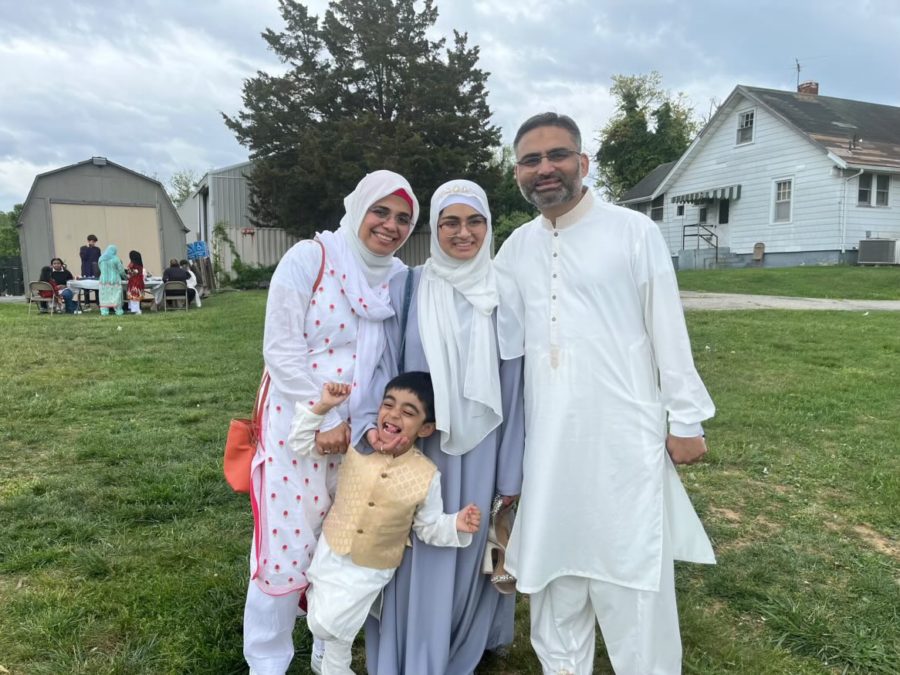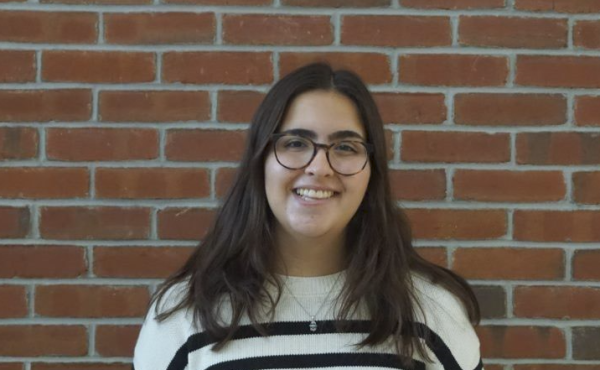Celebrating Eid-al-Fitr this Ramadan
Photo courtesy of Sayeda Hasni
Sayeda Hasni and her family pose at an Eid-al-Fitr celebration.
May 16, 2023
Starting the evening of March 22, many RM students spent the month honoring what is known as the holiest time for Muslims, along with more than 1.8 billion others around the world.
Ramadan is meant to honor the month during which Islam’s prophet Mohammed received the Qur’an, the Muslim holy book, from God. It is also believed that during the last 10 nights of Ramadan, he was revealed the first verses of the Qur’an.
One of the most prevalent customs during Ramadan is fasting from when the sun rises to when the sun sets. While fasting, Muslims wake up before the sun rises in order to eat a meal, called Suhur, before they begin their day. When the sun sets, they break their fast during a meal called Iftar.
It is common for Muslims to initially break their fast by eating dates, which was a custom of Mohammad, and drinking water. Throughout the month, many Muslims get together with family and friends to break their fast, which can be a highlight for many. “Being able to spend so much time with my community is really memorable…you just make a lot of good memories,” junior Sayeda Hasni said.
During Ramadan, Muslims congregate in mosques more frequently and say special prayers. Moreover, some set out to read the entire Qur’an within the month. “This month is where you really take your time to dedicate yourself to Allah by focusing on your relationship with him, practice discipline, let go of bad habits and try to complete the five obligatory pillars [of Islam],” junior Tazmira Tazrin said.
Ramadan is less a period of atonement and more a time to practice self restraint, reflection and is seen as a way to have empathy for those who are less fortunate.
In addition to not eating or drinking, Muslims are meant to avoid immoral behavior such as smoking and other immoral words and thoughts.
Because the Muslim calendar is shorter than the Greogorian calendar, Ramadan starts 10-12 days earlier each year, making it occur at a slightly different time each year. This year, the month-long holiday ended the evening of April 20, triggering the start of Eid-al-Fitr. Hasni
Additionally, many family and friends get together to eat after a month of fasting during the day. “Getting to eat amazing food after Eid prayer in the morning is one [of my favorite parts about Ramadan],” Tazrin said.



